| Listing 1 - 10 of 22 | << page >> |
Sort by
|
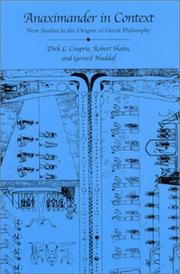
ISBN: 0791487784 9780791487785 0791455378 9780791455371 9780791455388 0791455386 9780791455371 0791455378 0791455386 Year: 2003 Publisher: Albany State University of New York Press
Abstract | Keywords | Export | Availability | Bookmark
 Loading...
Loading...Choose an application
- Reference Manager
- EndNote
- RefWorks (Direct export to RefWorks)
Places the development of Anaximander's thought within social, political, cosmological, astronomical, and technological contexts.
Philosophy, Ancient. --- Ancient philosophy --- Greek philosophy --- Philosophy, Greek --- Philosophy, Roman --- Roman philosophy --- Anaximander. --- Anaksymander --- Anassimandro --- Anaximandros, --- Ἀναξίμανδρος
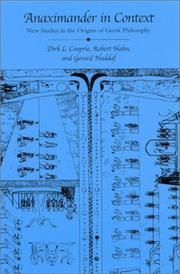
ISBN: 0791455386 Year: 2003 Publisher: Albany, N.Y. SUNY
Abstract | Keywords | Export | Availability | Bookmark
 Loading...
Loading...Choose an application
- Reference Manager
- EndNote
- RefWorks (Direct export to RefWorks)
Anaximander --- Philosophy, Ancient. --- Philosophy, Ancient --- Ancient philosophy --- Greek philosophy --- Philosophy, Greek --- Philosophy, Roman --- Roman philosophy --- Anaximander. --- Anassimandro --- Anaximandros, --- Ἀναξίμανδρος --- Anaksymander
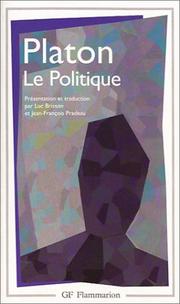
ISBN: 2080711563 Year: 2003 Volume: 1156 Publisher: Paris Garnier-Flammarion
Abstract | Keywords | Export | Availability | Bookmark
 Loading...
Loading...Choose an application
- Reference Manager
- EndNote
- RefWorks (Direct export to RefWorks)
Political science --- Utopias --- Science politique --- Utopies --- Early works to 1800 --- Philosophy --- Ouvrages avant 1800 --- Philosophie --- Philosophy, Ancient --- Ancient philosophy --- Greek philosophy --- Philosophy, Greek --- Philosophy, Roman --- Roman philosophy
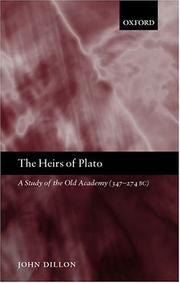
ISBN: 0198237669 0199279462 0191597333 9786611190309 1281190306 0191519251 1423788745 9780199279463 Year: 2003 Publisher: Oxford Clarendon
Abstract | Keywords | Export | Availability | Bookmark
 Loading...
Loading...Choose an application
- Reference Manager
- EndNote
- RefWorks (Direct export to RefWorks)
Philosophy, Ancient. --- Platonists. --- Speusippus --- Xenocrates, --- Philosophy, Ancient --- Platonists --- Platonism --- Philosophers --- Ancient philosophy --- Greek philosophy --- Philosophy, Greek --- Philosophy, Roman --- Roman philosophy --- Platoniciens --- Philosophy [Ancient ] --- History --- History. --- Platonists - History.
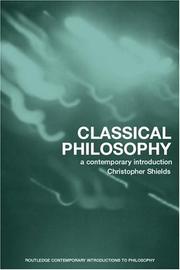
ISBN: 0415233984 0415233976 Year: 2003 Publisher: London Routledge
Abstract | Keywords | Export | Availability | Bookmark
 Loading...
Loading...Choose an application
- Reference Manager
- EndNote
- RefWorks (Direct export to RefWorks)
Philosophy, Ancient --- 1 <37/38> --- 1 <37/38> Filosofie: klassieke oudheid --- Filosofie: klassieke oudheid --- Ancient philosophy --- Greek philosophy --- Philosophy, Greek --- Philosophy, Roman --- Roman philosophy --- History of philosophy --- Antiquity
Book
ISBN: 3923946635 9783923946631 Year: 2003 Volume: 22 Publisher: Bonn Borengässer
Abstract | Keywords | Export | Availability | Bookmark
 Loading...
Loading...Choose an application
- Reference Manager
- EndNote
- RefWorks (Direct export to RefWorks)
Filosofia antica --- Philosophy, Ancient --- Islamic civilization --- Hellenism --- Greek influences --- Influence --- 1 <38> --- Griekse filosofie --- Philosophy, Ancient. --- Influence. --- Greek influences. --- 1 <38> Griekse filosofie --- Ancient philosophy --- Greek philosophy --- Philosophy, Greek --- Philosophy, Roman --- Roman philosophy --- Islamic civilization - Greek influences --- Hellenism - Influence
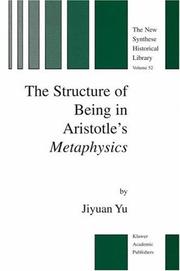
ISBN: 1402015372 9401039917 9401000557 Year: 2003 Volume: 52 Publisher: Dordrecht Kluwer
Abstract | Keywords | Export | Availability | Bookmark
 Loading...
Loading...Choose an application
- Reference Manager
- EndNote
- RefWorks (Direct export to RefWorks)
In his Metaphysics, Aristotle claims that he is seeking to establish a science of being. Being, at the most general level, is divided by Aristotle into the following four types: 1. Accidental being 2. Being as truth 3. Potential/actual being l 4. Per se being Per se (kath hauto) being can also be translated as "being in its own right" or "intrinsic being". This type of being has been referred to by Aristotle in different ways. The list of per se beings includes substance, quantity, quality, place, time, etc. , and this is also the list ofcategories. At Meta. ix. l, 1045b28 Aristotle calls this list the "categories of being" (hai kategoriai tou ontos). At Meta. vi. 2, 1026a36 and ix. 1O, 1051a33-b2 per se being is called "being with reference to the figures ofpredication" (ta schemata tes kategorias, or "figures ofcategories,,). 2 Of these four types of being, accidental being is briefly treated in Meta. vi. 2-3 and there Aristotle claims that the study of accidental being can be dismissed on the grounds that accidental being is indeterminate and cannot be 3 the object ofknowledge. He also does not pay much attention to being as truth and treats it briefly in two short texts: Meta. viA and ix. 1O.
Being --- Etre (Philosophie) --- Ontologie --- Ontology --- Zijn (Filosofie) --- Zijnsleer --- Ontology. --- Aristotle. --- Philosophy --- Metaphysics --- Necessity (Philosophy) --- Substance (Philosophy) --- Aristoteles. --- Aristotle --- Philosophy. --- Philosophy, Ancient. --- Metaphysics. --- Philosophy, general. --- Classical Philosophy. --- History of Philosophy. --- God --- Philosophy of mind --- Ancient philosophy --- Greek philosophy --- Philosophy, Greek --- Philosophy, Roman --- Roman philosophy --- Mental philosophy --- Humanities
Book
ISBN: 8822252454 9788822252456 Year: 2003 Volume: 211. Publisher: Firenze Olschki
Abstract | Keywords | Export | Availability | Bookmark
 Loading...
Loading...Choose an application
- Reference Manager
- EndNote
- RefWorks (Direct export to RefWorks)
Ancient philosophy --- Antieke filosofie --- Filologie [Griekse ] --- Filosofie [Antieke ] --- Filosofie [Griekse ] --- Filosofie [Romeinse ] --- Filosofie van de Oudheid --- Greek philology --- Greek philosophy --- Griekse filologie --- Griekse filosofie --- Philologie grecque --- Philology [Greek ] --- Philosophie ancienne --- Philosophie antique --- Philosophie de l'Antiquité --- Philosophie grecque --- Philosophie romaine --- Philosophy [Ancient ] --- Philosophy [Greek ] --- Philosophy [Roman ] --- Roman philosophy --- Romeinse filosofie --- Greek philology. --- Philosophy, Ancient.
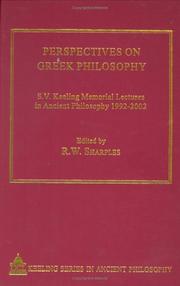
ISBN: 0754632792 9780754632795 Year: 2003 Volume: *1 Publisher: Aldershot: Ashgate,
Abstract | Keywords | Export | Availability | Bookmark
 Loading...
Loading...Choose an application
- Reference Manager
- EndNote
- RefWorks (Direct export to RefWorks)
Ancient philosophy --- Antieke filosofie --- Filosofie [Antieke ] --- Filosofie [Griekse ] --- Filosofie [Romeinse ] --- Filosofie van de Oudheid --- Greek philosophy --- Griekse filosofie --- Philosophie ancienne --- Philosophie antique --- Philosophie de l'Antiquité --- Philosophie grecque --- Philosophie romaine --- Philosophy [Ancient ] --- Philosophy [Greek ] --- Philosophy [Roman ] --- Roman philosophy --- Romeinse filosofie --- Philosophy, Ancient --- Philosophy, Greek --- Philosophy, Roman --- Philosophy, Ancient - Congresses.
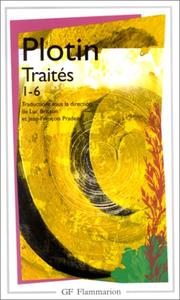
ISBN: 2080711555 9782080711557 9782080711649 9782080711984 9782081200753 9782081450806 9782080262073 9782081450813 9782081223288 2080711644 2080711989 2081223287 Year: 2003 Volume: 1155 Publisher: Paris Flammarion
Abstract | Keywords | Export | Availability | Bookmark
 Loading...
Loading...Choose an application
- Reference Manager
- EndNote
- RefWorks (Direct export to RefWorks)
Né en Égypte au début du IIIe siècle apr. J.-C., Plotin s'installe à Rome en 246, en terre stoïcienne, pour y enseigner les principes d'une philosophie platonicienne et y inaugurer la tradition qu'on dit aujourd'hui « néoplatonicienne ». De 254 jusqu'à la veille de sa mort, en 270, Plotin rédige un ensemble de textes que son disciple Porphyre éditera vers l'année 300 en les distribuant en cinquante-quatre traités, regroupés en six « neuvaines » : les Ennéades. Dans ces traités, Plotin se propose de guider l'âme de son lecteur sur le chemin d'une ascèse qui doit la conduire vers son principe, «l'Intellect » et lui permettre alors de percevoir, pour s'y unir, le principe de toutes choses qu'est « l'Un ».
Neoplatonism --- Néo-platonisme --- Philosophy. --- #GOSA:V.Oud.Plo.O --- Néo-platonisme --- Néoplatonisme. --- Âme. --- Plotin --- Neoplatonism. --- néoplatonisme --- Philosophie grecque --- Platon --- Philosophy --- Ontology --- Philosophy, Ancient --- Ancient philosophy --- Greek philosophy --- Philosophy, Greek --- Philosophy, Roman --- Roman philosophy --- Early works to 1800 --- Ouvrages avant 1800
| Listing 1 - 10 of 22 | << page >> |
Sort by
|

 Search
Search Feedback
Feedback About UniCat
About UniCat  Help
Help News
News